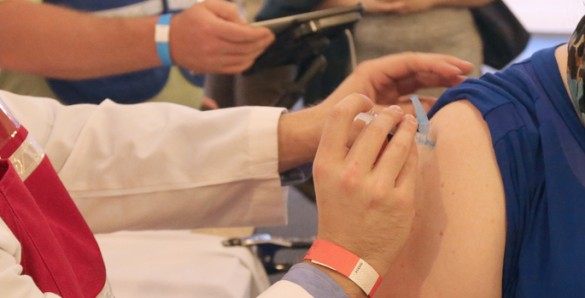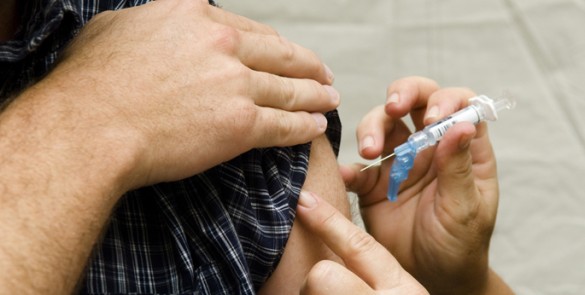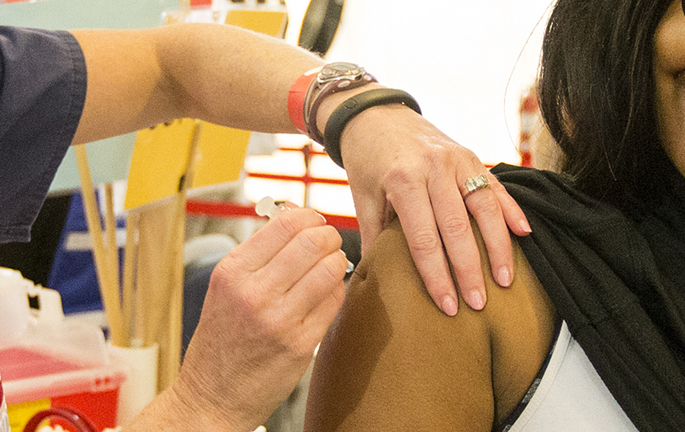A Word about Vaccines, Trust and Nutella
Colleagues,
I am relieved that the recent mumps outbreak here at Vanderbilt impacted only a small number of our students, as larger outbreaks over the past year in locations around the U.S. have been a cause for concern. The notice reminded me of the importance of vaccination, and the vital role our Medical Center plays in public safety. And it caused me to think about how fragile that safety can be, and what we can do to assure it.

Before vaccination began in 1967, mumps was a common disease of childhood. While death was uncommon, complications such as encephalitis and permanent deafness were a major concern. Even though limited outbreaks still occur today, particularly in close-contact settings such as schools and colleges, with vaccination mumps cases in the U.S. have been reduced by 99 percent. Childhood vaccination has also dramatically reduced the incidence of pertussis, or “whooping cough,” but unlike mumps, pertussis is life-threatening for babies. During a spike of cases in the U.S. in 2012, 20 infants died, reminding us of the vital importance of maintaining robust childhood vaccination programs.
In the face of these reminders, across the U.S., and particularly in Texas, we are seeing a resurgence of “anti-vaccine” advocacy, fueled by a research paper published over 20 years ago linking vaccines and autism. The paper was later shown conclusively to be fraudulent with falsified results, but is still used with success by people seeking to convince legislators to eliminate the vaccine requirements protecting our schools and communities.
Why do I raise this issue? And what do vaccinations have to do with my favorite hazelnut and chocolate spread, Nutella? We are living in a time where the public’s confidence in science is frayed. Some even fear we are entering a “pre-Enlightenment era,” where ideology outweighs evidence in shaping public policy. Whether fears of this nature will be realized are matter of debate, but feeding this erosion in confidence are countless stories of dubious credibility relating to health and science in the media. Just a month ago, versions of the headline “Nutella may cause cancer” went viral, and despite little to any supporting evidence, garnered attention worldwide. To my considerable relief, it was not removed from the grocery shelves!
So what do people really believe? Americans’ trust and confidence in the mass media “to report the news fully, accurately and fairly” has dropped to historically low levels, with only 32 percent saying they have a great deal or fair amount of trust in the media.
In this chaotic milieu, we know that the majority of people are obtaining the information they use every day online. And in health care, like all other goods and services, people look for the most reliable health information they can find, and in the end usually hover over the names they trust. Trust impacts our choices about nearly everything we decide to do or consume; from health care to toilet paper (yes, Charmin is still No. 1 according to Readers Digest) to pet food (Purina still wins that contest).
The sad fact is, lack of trust in our health care institutions, and of health care providers, causes harm. Lack of trust reduces the likelihood people will seek the health care they need, and makes it less likely people will accept health advice (recall the fears of childhood vaccination). High trust increases the likelihood patients will return for follow-up care and adhere to their treatments.
Building and maintaining trust could well be the most important thing that we, as members of the VUMC community, do every single day. We build trust through publishing science that is trustworthy – we don’t over-promote our findings, and our investigators take enormous care to publish results that are reproducible, with conclusions that are backed by hard evidence. We build trust by training the students, residents, and fellows that support the health of people across our entire region with the greatest possible expertise and compassion. And as we care for millions of people each year in our Medical Center, we not only build trust through successfully caring for their illnesses, but perhaps even more so by our manner of care. The VUMC Credo Behaviors serve as our platform, and I find the capstone statement “We treat others as we wish to be treated” to be the most helpful. It is so easy to remember, and it resonates with how we all feel about about the care each and every one of us want for our own families.
In the end, as long as people in Nashville and around the world witness us treating them as we’d hope to be treated, day in and day out, they will listen to us when we advise them; they will read and believe what we publish; and they will seek our care early, in their daily walk, when we can help them most.
They will trust us.
Jeff Balser, M.D., Ph.D. President and CEO, Vanderbilt University Medical Center Dean, Vanderbilt University School of Medicine















